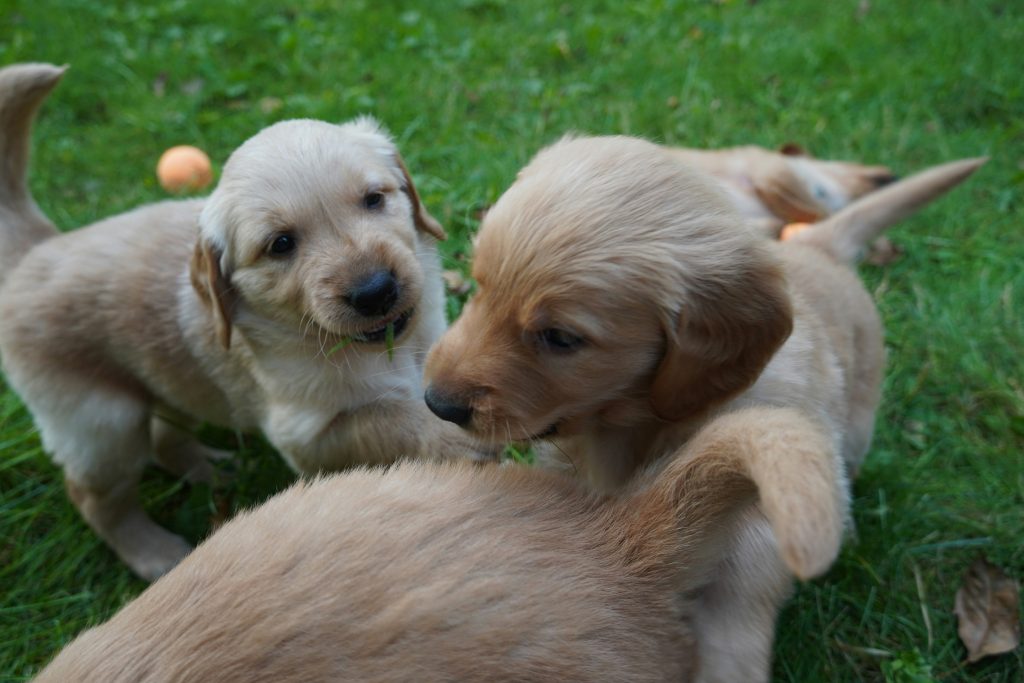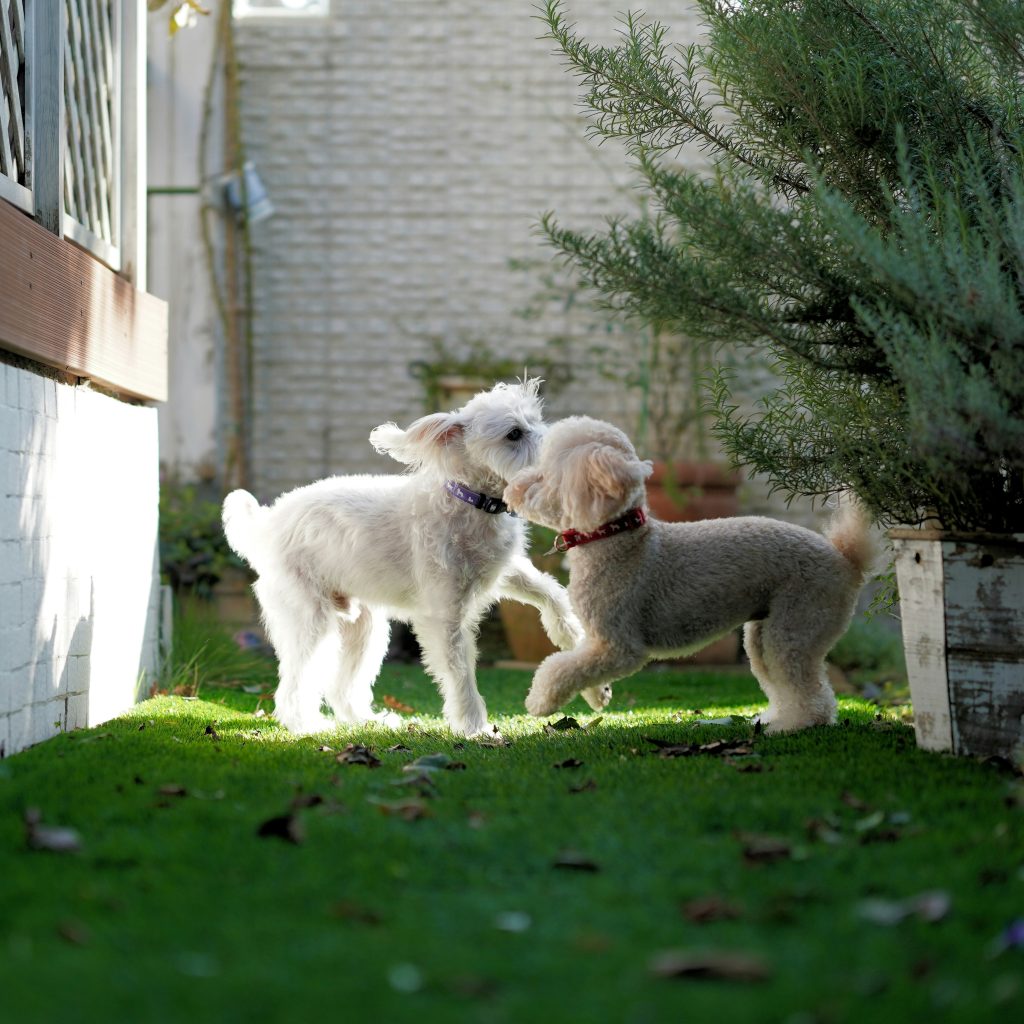Using Play to Boost Your Puppy’s Confidence
Play isn’t just about fun and games for puppies—it’s an essential tool for building confidence, resilience, and social skills. Through play, puppies learn how to navigate their world, solve problems, and interact with both people and other animals.
In this blog, we’ll explore why play is so important, how to use it to boost your puppy’s confidence, and the best types of games to help your puppy thrive.
Why Play Matters for Puppy Confidence
Puppies are naturally curious, but they’re also learning what’s safe, fun, and acceptable. Play provides a safe environment for them to:
-
Test limits and boundaries
-
Practice problem-solving
-
Learn social cues
-
Build physical coordination
-
Develop resilience after minor setbacks
When a puppy successfully engages in play—whether with a human, another dog, or a toy—they get a little confidence boost. Over time, this builds a foundation of emotional strength and adaptability.
Types of Play That Build Confidence
Not all play is created equal when it comes to confidence-building. Here are some of the best types of play to help your puppy grow into a resilient adult:
1. Interactive Play with You
Games like tug-of-war, fetch, and hide-and-seek are fantastic for boosting confidence.
-
Tug-of-war: Far from promoting aggression (a common myth), tug can actually teach your puppy impulse control and help them feel strong and successful. Let your puppy “win” sometimes to build their self-esteem.
-
Fetch: This teaches your puppy to chase, retrieve, and return—and the praise they get when they bring back the ball makes them feel like a superstar.
-
Hide-and-seek: Hiding and calling your puppy builds recall skills and helps them feel brave as they search for you.
2. Play with Other Puppies or Dogs
Safe, supervised puppy playdates are invaluable. They allow your pup to:
-
Learn bite inhibition
-
Understand canine body language
-
Practice appropriate play behavior
Choose calm, well-socialized dogs as playmates, and always supervise to ensure play stays positive and fair.
3. Puzzle Toys and Games
Mental stimulation is just as important as physical exercise. Toys like treat-dispensing balls, snuffle mats, or simple DIY puzzles (like hiding treats under cups) challenge your puppy’s brain and build problem-solving skills.
Start easy and gradually increase difficulty to keep your puppy motivated and confident.
4. Exploration Games
Set up small obstacle courses in your yard or living room using cardboard boxes, tunnels, or cushions. Encourage your puppy to navigate through them with treats and praise. This builds:
-
Courage in new environments
-
Body awareness and coordination
-
Confidence in facing mild challenges
Tips for Confidence-Boosting Play
To get the most out of playtime, keep these tips in mind:
✅ Keep it positive: Use an upbeat tone, gentle encouragement, and treats or praise.
✅ Let them win: Whether it’s tug-of-war or solving a puzzle, make sure your puppy experiences success.
✅ Watch their body language: If your puppy seems fearful or overwhelmed, dial it back and make the game easier or more gentle.
✅ Match the challenge to the puppy: Don’t expect a shy puppy to love rough-and-tumble games right away. Start slow and gradually introduce more complex or energetic activities.
✅ Short sessions are best: Puppies have short attention spans. Aim for several 5–10 minute play sessions throughout the day instead of one long session.
Building Resilience Through Minor Setbacks
Play naturally introduces small frustrations—like not catching the ball on the first try or losing a tug-of-war round. Learning to handle these minor setbacks without giving up builds resilience.
Help your puppy through these moments by:
-
Offering encouragement
-
Breaking the task into smaller, achievable steps
-
Ending the game on a positive note
Over time, your puppy will develop perseverance and a “can-do” attitude that carries over into other areas of life.
Social Play Tips
When playing with other dogs, remember:
-
Supervise closely: Step in if play gets too rough or one puppy seems overwhelmed.
-
Match play styles: Pair puppies with similar energy levels and sizes.
-
Provide breaks: Give puppies time to cool off and reset if excitement runs too high.
Final Thoughts
Play is one of the most powerful tools for shaping your puppy into a confident, well-adjusted adult dog. Through playful interactions, your puppy learns how to navigate the world, solve problems, and bounce back from challenges.
By offering a mix of interactive games, social play, and mental challenges, you’re not just keeping your puppy entertained—you’re helping them become a resilient, happy companion who’s ready to take on life’s adventures.


